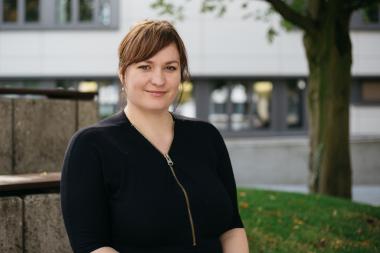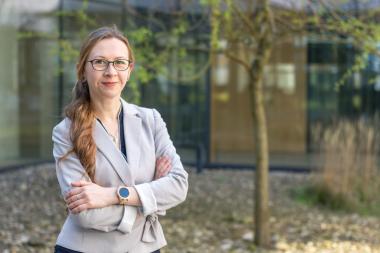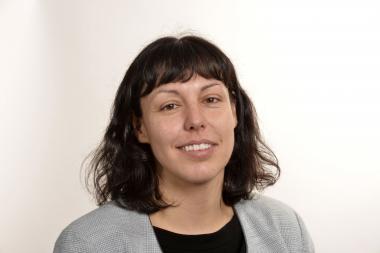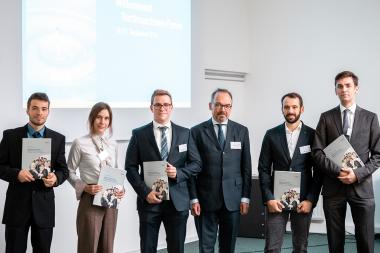Doktorandin der Hochschule Niederrhein entwickelte textile Batterie
Mit der Entwicklung einer Batterie aus umweltfreundlichen Textilien hat Sandra Gellner, Doktorandin der Hochschule Niederrhein, eine Auszeichnung auf einer internationalen Konferenz erhalten. Die Doktorandin arbeitet im Bereich Smart Electronic Textiles an der Schnittstelle der Fachbereiche Elektrotechnik und Informatik sowie Textil- und Bekleidungstechnik.
Ihr Vortrag „Textile-Based Battery Using A Biodegradable Gel-Electrolyte“ wurde auf der internationalen Konferenz E-Textiles 2020 („2nd International Conference on the Challenges, Opportunities, Innovations and Applications in Electronic Textiles“ mit dem Best Student Presentation Award ausgezeichnet. Die virtuell stattfindende internationale Konferenz gibt verschiedenen Expertinnen und Experten die Möglichkeit, ihre aktuelle Forschung im Bereich intelligenter Textilien vorzustellen.
Sandra Geller, 29 Jahre jung, wohnhaft in Duisburg, hatte zuvor an der Universität Duisburg-Essen NanoWissenschaften studiert. Im Rahmen ihrer Promotion an der Hochschule Niederrhein hat sie eine textil-basierte, ein Millimeter hohe Batterie entwickelt, welche aus umweltfreundlichen Materialien inklusive eines biologisch abbaubaren Gel-Elektrolyten besteht. Durch die textile Architektur ist die Batterie flexibel und kann um 180 Grad in beiden Richtungen gebogen werden, ohne einen Kurzschluss zu erzeugen. Die Wahl der Werkstoffe ermöglicht zudem einen Betrieb ohne zusätzliche Verkapselung.
„Diese Auszeichnung bestätigt die exzellente interdisziplinäre Zusammenarbeit der beiden Fachbereiche und ermutigt uns den Weg gemeinsam weiter zu bestreiten“, sagen die beiden Professorinnen Anne Schwarz-Pfeiffer (Fachbereich Textil- und Bekleidungstechnik) und Ekaterina Nannen (Fachbereich Elektrotechnik und Informatik). Damit sei der Grundstein für eine gemeinsame fachbereichsübergreifende Lehre auf dem Gebiet der smarten Textilien mit dem gemeinsamen Wahlpflichtfach Smart Electronic Textiles gelegt.
Neben Sandra Gellner hielt auch die Doktorandin Ramona Nolden der Hochschule Niederrhein einen Vortrag mit dem Titel „Smart Glove with an Arduino-Controlled Textile Bending Sensor, Textile Data Conductors and Feedback Using LED-FSDs TM and Embroidery Technology“. Sie entwickelte einen intelligenten Handschuh, der aus einem integrierten textilen Biegesensor im Finger, funktionalen Pailletten auf dem Handrücken, einer ansteckbaren Manschette mit einem Mikrocontroller und einer Energiequelle besteht.
Hochschule Niederrhein Smart Electronic Textiles Smart textiles Textil- und Bekleidungstechnik
Hochschule Niederrhein











